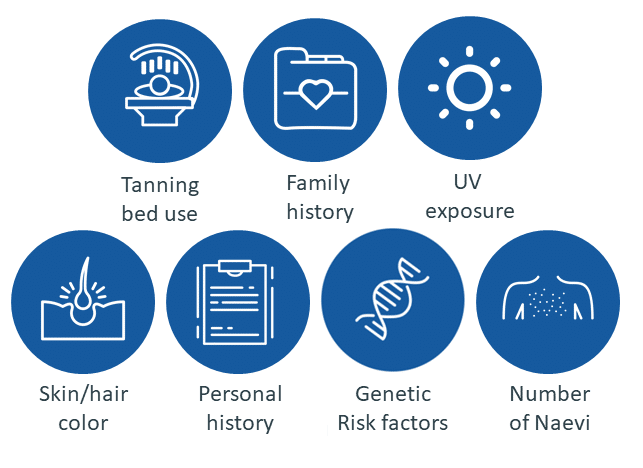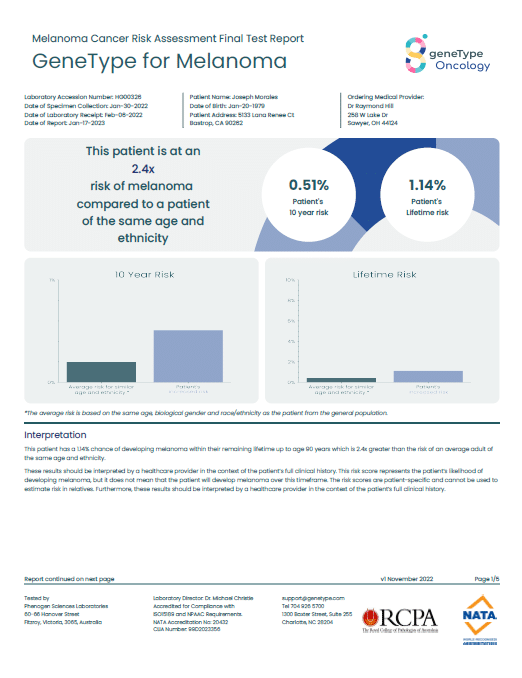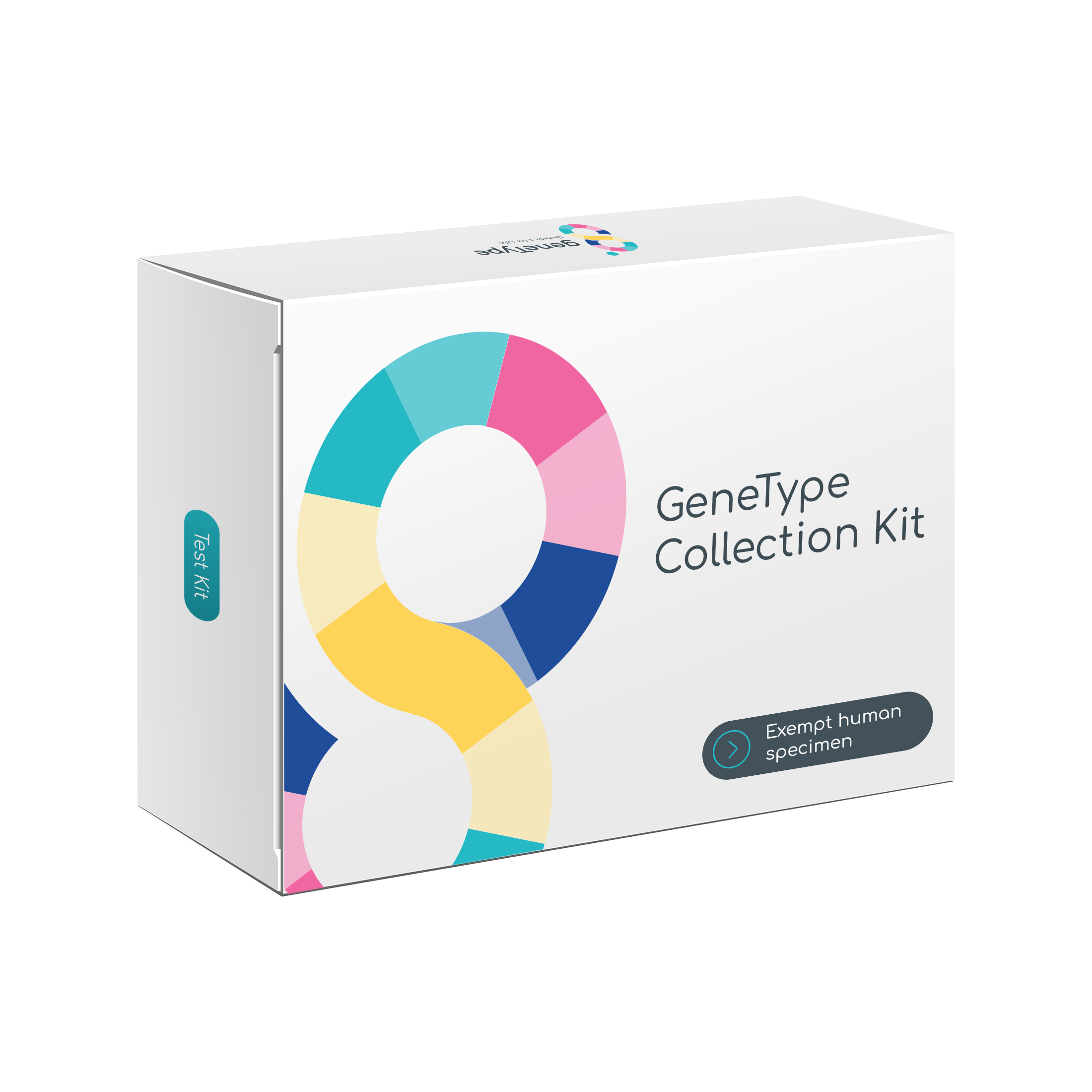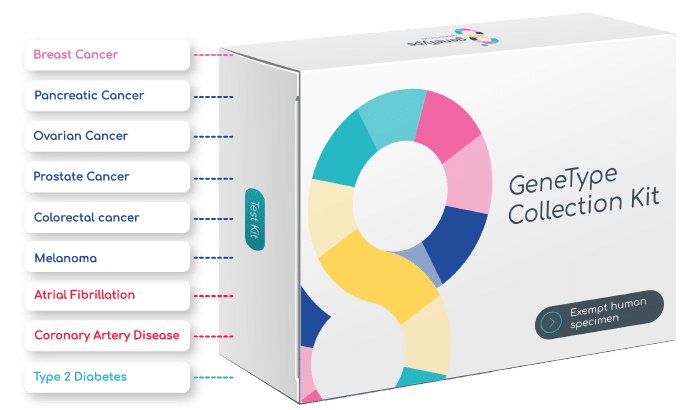Get screened based on your personal melanoma risk
Routine skin checks are important to early detection of skin cancers, including melanoma. But, could you be doing more?
Understand your risk of developing melanoma.
Have a more informed discussion with your doctor about the options that exist for you.
Available through your healthcare provider.

With geneType, you can get a better understanding of your risk. Optimize your screening options with your doctor based on your risk of melanoma.

Key features of a geneType report
● Understand your risk of melanoma
● A lifetime risk score and a 10-year risk score
● Discussion points around screening recommendations from the USPSTF


Personalized risk score. Personalized health plan.
Are you doing all you can to reduce your risk of melanoma?
Would you benefit from additional skin-cancer screening?
GeneType can help you have a joint-decision-making discussion with your HCP.
Is geneType right for you?
- Adults
- Age 30-85 years
- No known hereditary gene mutation e.g. CDKN2A


Uniquely powered to assess your risk
Get a clearer picture of your risk.
Make screening decisions that fit your needs.
Know your risk of melanoma, so you can take action.
Know your risk of melanoma so you can take action
Speak to your healthcare provider today about geneType.
To order online through our patient portal, follow these four simple steps to be connected with a third-party telehealth provider.

Step 1
Register for your geneType test using our portal.
Depending on the test, you may require access to your medical records (ex. lipid panel or breast density results).
Payment will be collected at time of registration.

Step 2
Your clinical information will be reviewed by our 3rd party telehealth partner, DNA Visit.
If you qualify for testing, a kit will be shipped to your address on file.
If you do not qualify for testing, you will receive a refund.

Step 3
Complete buccal sample collection as instructed and return in pre-paid envelope.
Do not eat, drink, smoke, vape or chew gum within 30 minutes of collection.

Step 4
When your results are ready, you will have the chance to speak with your DNA Visit healthcare provider.
All at-risk patients will be required to speak with the provider prior to results-release.
Have questions? We have answers.
If your question is not shown here, please contact us directly.
Will insurance cover this test?
No. At this time geneType is a self-pay test. However, you may use FSA/HSA to pay for the test.
Can I order this test if I am a known carrier for a hereditary cancer syndrome (ie. BRCA1 or BRCA2)?
This test is not applicable to adults who have personal history of melanoma or who have already been shown to have a cancer mutation, for example in the CDKN2A gene, or a diagnosis of a genetic syndrome that may be associated with an elevated risk of melanoma.
Does this test incorporate all potential risk factors for melanoma?
Cancer is a multifactorial disease and there are many different risk factors. Of these, geneType integrates the most predictive risk factors into the model. Future models may include additional risk factors as the scientific community’s understanding of melanoma continues to evolve.

*Patient eligibility dependent on personal medical history, age and sex
Interested in ordering more than one disease? Order geneType Multi-Test.
See individual disease pages for more information about each test.
The Multi-Risk suite of tests is for adults 40-85 years of age. At maximum, a woman would be eligible for 8 diseases in the panel; a man would be eligible for 7. Starting at age 30, a patient may qualify for geneType's cancer risk assessments only.
What’s happening?
GeneType Multi-Risk assessments tailored to your needs
It’s not always easy to know what questions to ask your Doctor. Here are some breast cancer risk questions…
Breast Cancer risk – Starting the conversation
It’s not always easy to know what questions to ask your Doctor. Here are some breast cancer risk questions…
Proactive steps for breast cancer risk reduction
Breast awareness is important whether you are 35 or 75. When you understand your risk, you can be a better advocate for yourself…
References
- American Cancer Society Melanoma Prevention. Available at: https://www.cancer.org/cancer/prostate-cancer/detection-diagnosis-staging/acs-recommendations.html. Accessed August 2023.
- Wong CK, Dite GS, Spaeth E, Murphy NM, Allman R. Melanoma risk prediction based on a polygenic risk score and clinical risk factors. Melanoma Res. 2023;33(4):293-299. doi:10.1097/CMR.0000000000000896







